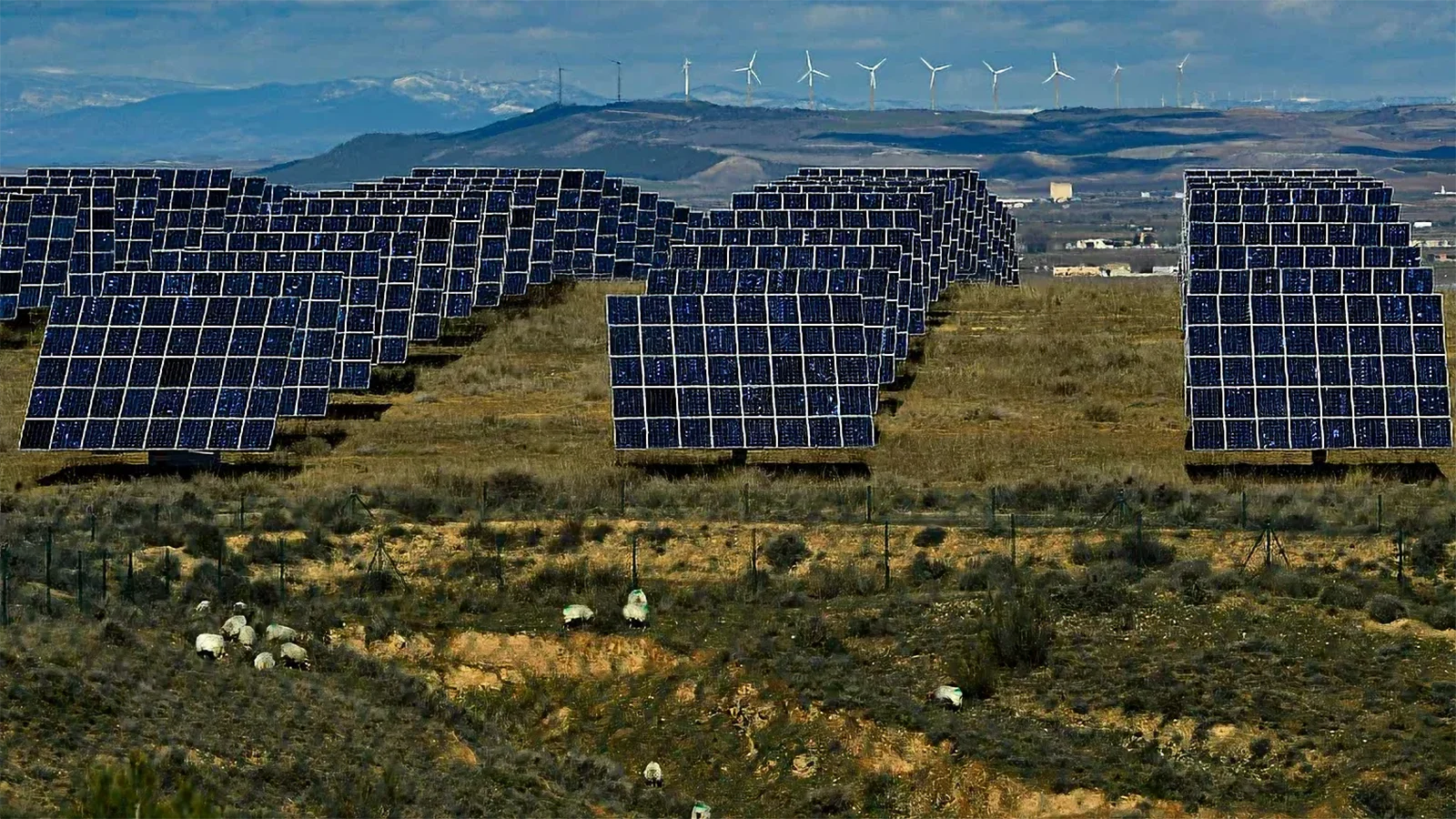News and activities
Spain is our green country of the month - but its environmental ambitions hang in the balance

Free train tickets, renewable energy and the closure of coal-fired power plants: why we celebrate Spain's environmental achievements this month
This summer's heatwaves, wildfires and extreme weather have thrust the climate crisis into the spotlight in Europe and beyond.
The need to decarbonize our energy system and protect our environment has never been clearer.
Each country has unique challenges and resources that influence the path to net-zero greenhouse gas emissions. But celebrating each other's successes can help inspire and pressure our own politicians to follow suit.
Here are our previous green countries for the month: Albania, Denmark, Iceland, Austria and Portugal. This month we're celebrating European countries with green ambitions hanging in the balance.
Spain is on the frontline of the climate crisis and has made progress in environmental policy in recent months and years.
Since finally introducing the country's first climate law in 2021, the governing Spanish Socialist Workers' Party (PSOE) has set progressive emissions reduction targets and increased production of renewable energy in the country.
After the July elections, the country's future is uncertain. But this is why Spain has our green score for August.
Spain is moving away from coal and towards renewable energy.
Spain is accelerating towards a coal-free energy sector with plans to phase out polluting energy sources by 2025, five years earlier than planned, as announced in June.
This month it was confirmed that the country's largest coal-fired power plant, located in As Pontes, Galicia, is scheduled to shut down by August 2024.
This opens the way for renewable energy projects that take advantage of Spain's abundance of sun and wind.
The country is on track to produce more than half of its energy from renewable sources this year. This would make it the first country in Europe's top five energy needs, including France, Germany, Italy and the United Kingdom, to achieve this feat, according to research company Rystad Energy. This comes on the back of a history of Strategic investment and early adoption of technologies such as onshore wind.
Subject to improvements requested by the EU, Spain launched a revised energy and climate plan in June, which is now subject to public consultation. It increases its emissions reduction target by nearly 10 percent (to 32 percent) by 2030. It also nearly doubles the amount of solar power expected to come on line by the end of the decade.
However, some climate campaigners say the target still lacks ambition and have called for a 55% greenhouse gas emissions reduction target to be in line with wider EU targets.

By 2030, renewable energy could account for 48 percent of the energy mix and 81 percent of the electricity generating capacity in Spain. which helps strengthen the country's energy security.
“Spain is producing about 50% of its energy from renewables and coal workers could have a bright future with a Just Transition strategy,” said Alexandru Mustață, campaigner at the non-profit organization Beyond Fossil Fuels.
The country's eight high-carbon regions have accessed EU Just Transition funds, a record for any country under the program. The fund aims to ensure that the transition to a climate-neutral economy is fair and leaves no one behind.
Endesa's 1,468 MW coal-fired power plant will be replaced by a renewable energy operation. Including a 1 GW wind project expected to create 1,300 jobs in the region.
However, the country has not yet set a concrete closing date for the remaining four coal plants, so there is still some way to go.
Spain is incentivizing sustainable transport.
Transport accounts for approximately one-fifth of global CO2 emissions, with aircraft contributing the most to the pollution.
Spain leads the way in sustainable transport in Europe with radical rail transformation In a short period of time, the country has tripled the number of high-speed carriers, in part by accepting EU plans to liberalize Europe's railways.
By opening its railways to competition in recent years, Spain has nurtured a rail network that can compete with budget airlines in price, speed and consistency.
Various discount train ticket projects It also encourages people to travel more sustainably.
In September 2022, the country launched free train travel on buses and regional lines to encourage people to ditch their cars in favor of public transport.
The first two months of 2023 saw an increase of almost 36 percent in passengers on Renfe passenger trains compared to the previous year. Regional rail use increased more than 87 percent during the same period.
The project has been extended until December 2023, after which a permanent version may be introduced depending on the impact on traffic and emissions reductions.
This summer the Spanish government also slashed bus and train ticket prices for young people by 90 percent and capped the price of high-speed rail services at 30 euros per ticket. Interrail tickets have been cut in price by 50 percent.
The €170 million scheme is available to 18 to 30 year olds and runs until 15 September.

Why is Spain's green transition a risk?
in the general election last month Neither the Spanish Socialist Workers' Party (PSOE) nor the conservative People's Party (PP) had an absolute majority. Now two opposition parties must fight to form a coalition government.
PSOE made its green ambitions clear when it announced Spain's first climate change and energy transition law in 2021, which includes the goal of achieving climate neutrality by 2050.
Renewable energy policy The party's Biodiversity, Transport, Recycling and Water Management supports this goal and the EU Green Deal.
The PP aims to reduce these targets to make them more attainable for business, threatening to slow down Spain's green transition. Climate policy could be further compromised if it partners with the climate change rejecting far-right Vox party.
The two sides are now competing to find allies to form a new government. The PP's close relationship with Vox could harm its chances of winning support from more moderate parties, while the PSOE will have to rely on pro-Basque and Catalan independence parties to maintain a majority.
Ninety percent of Spaniards are very or somewhat concerned about the climate emergency, according to a survey last year by the Spanish Center for Sociological Research (CIS).



